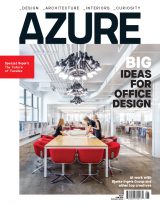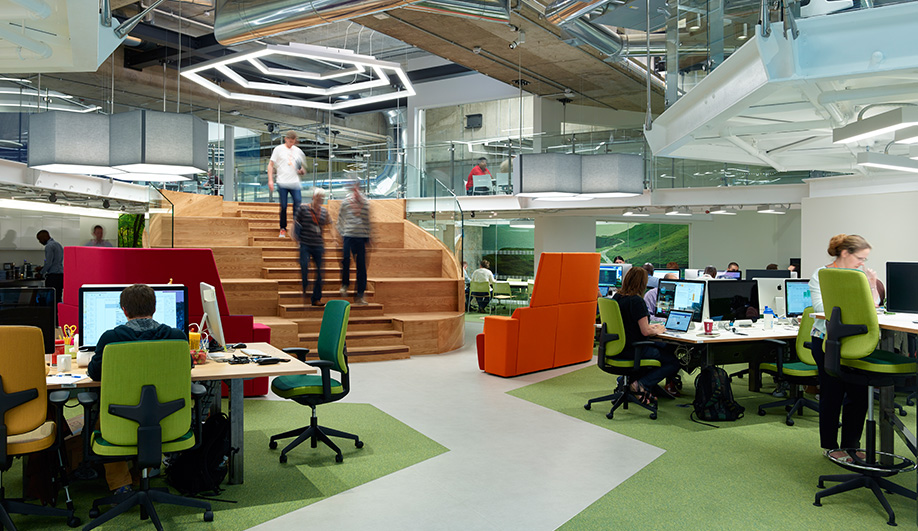
A digital hub for a British grocery chain remakes a dreary basement into a hive of light and activity.
Looking around the well-lit offices of Sainsbury’s Digital Lab in central London, it’s hard to imagine its former life as a windowless basement canteen. Now the 991-square-metre space is an eye-filling display of colourful seating, hexagonal work islands and inviting booths.
The lab is where developers work on next-gen technologies that are changing how we shop for groceries, including apps that allow you to purchase products directly off the shelf rather than line up at the cash; and e-ink pricing devices that automatically update labels, doing away with the need for printed stickers. Creating an environment that would attract and retain the best digital talent was therefore an imperative. London’s Chetwoods Architects was commissioned to transform the basement into a highly flexible and visually stimulating place to work.
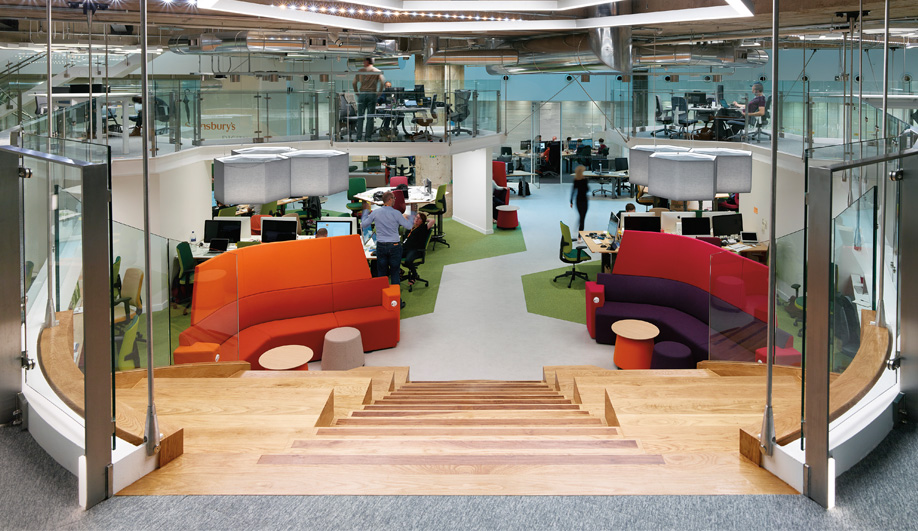
A series of negatives were cleverly turned on their heads. Suspended ceilings, for instance, were removed to reveal ductwork and geometric coffers that perfectly suit the non-corporate industrial chic trend, and a rarely used staircase was dismantled to make way for more square footage.
A mezzanine was added as well, to provide staffers with a place to step outside the fray for a while. A glass railing allows people to lean in and watch the action below, a mesmerizing scene of developers and designers hunkered around computer screens or chatting to colleagues on sofas.
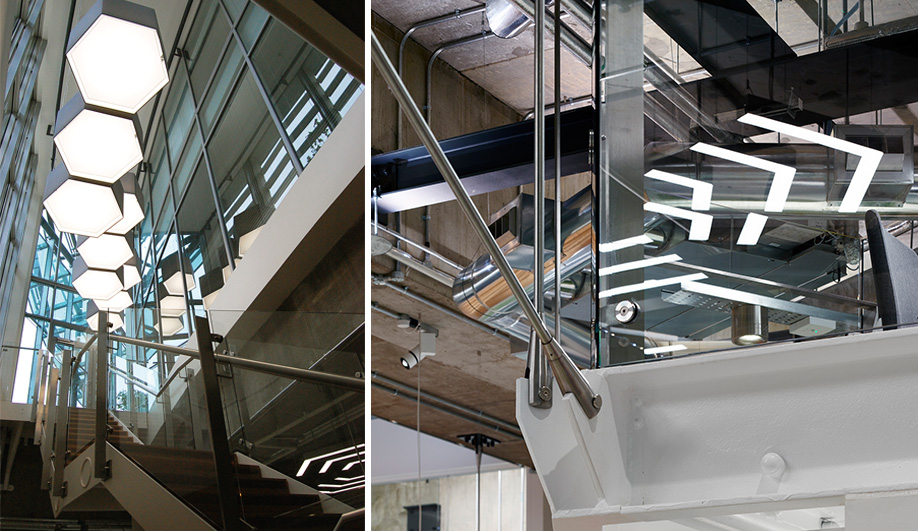
To make up for the lack of daylight, the firm installed LEDs that replicate natural light and change in intensity throughout the day. A 42-metre-long skylight, comprised of slots that help redirect natural light, links the basement to an atrium and the street above. The connection is fundamental, says account manager Clive White. “If it’s raining, people know it’s raining; if it’s sunny, they can see that, too.”

Another key move was the addition of a wooden staircase that doubles as a place to sit and socialize, or it can serve as an amphitheatre for larger presentations. White describes the overall design as loosely based on a garden, with a treehouse that branches out into the sky upstairs.
On the ground level, curved concrete strips represent stone pathways, and the colourful carpeted areas are the flower beds. The analogy sounds gimmicky, but White is convinced that it’s an effective device. As a result, staff are much more mobile, he says: “They respect spaces like this more, because there’s variation, and everyone can find areas they feel comfortable working in.”
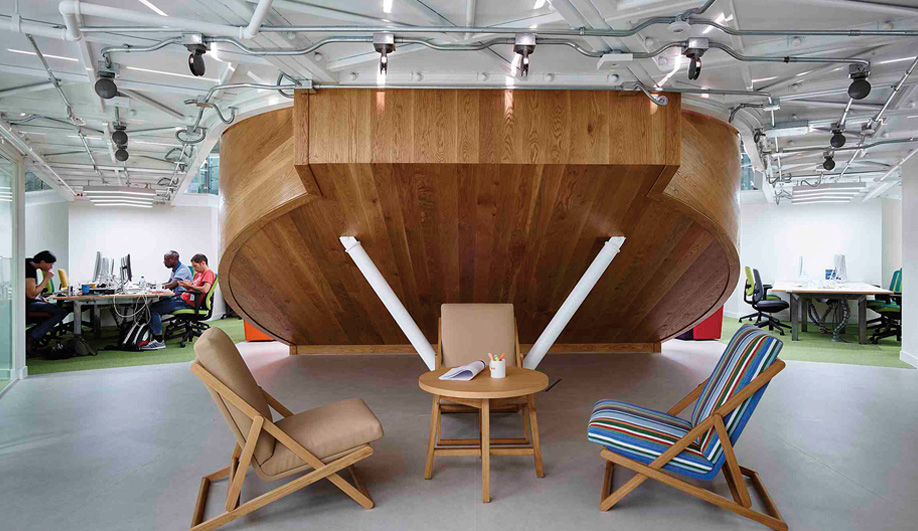
The only enclosed spaces are five meeting rooms and four offices. That’s because, like many corporations, including Google, Unilever and KPMG, Sainsbury’s, one of the U.K.’s leading supermarket chains, has embraced activity-based work for its digital lab. A more enlightened incarnation of hot desking, ABW sees employees lose their assigned desks and in return gain a panoply of semi-private and communal spaces that accommodate different tasks, particular working styles – even one’s mood on a given day.
For instance, the mezzanine is for “touch-down concentrated work,” while the main floor is all about collaboration, says head of operations and production Tom Gilhooly: “We kept coming back to that idea of a hive of bees going out, researching and coming back to share what they have found with their counterparts.” He adds that 70 per cent of the staff is using the space as intended, by moving around rather than nesting.
“People discover that they learn more through their interactions with colleagues than they do at home,” says White. “Things move faster here; you have all of the tools and people you need at your fingertips.” And you can always retreat to the clouds when things get too hectic in the hive.
